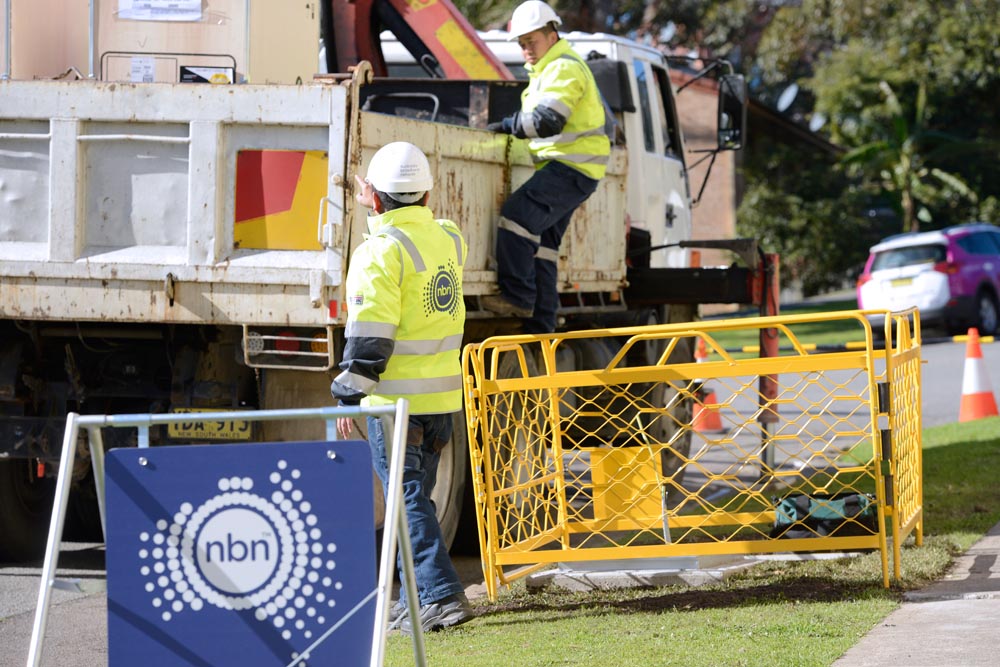
Wholesale broadband provider NBN Co and the Australian consumer watchdog have reached agreement after more than two years of consultation. Photo: NBN.
Measures to protect consumers from sharp price rises will be added to the rulebook governing how Australian broadband providers access the National Broadband Network (NBN).
The rulebook, also known as the Special Access Undertaking (SAU), is an undertaking valid until 2040 given by wholesale broadband provider NBN Co to the Australian consumer watchdog.
The Australian Competition and Consumer Commission (ACCC) originally accepted the SAU in 2013. Changes made this October represent only the second time the ACCC has accepted a variation.
It includes measures designed to protect consumers from sharp price rises, reduce barriers to entry for new retailers and create incentives to fix systemic issues that drive poor NBN consumer experience.
ACCC Commissioner Anna Brakey said the consumer watchdog was satisfied the proposal “promotes the long-term interests of Australians, which is the primary objective of the test that we have to apply”, while NBN Co Chief Regulatory Affairs Officer Jane van Beelen welcomed the ACCC’s approval as “great news for customers” and “the start of an important new era for the Australian telecommunications industry”.
The new SAU introduces long-term pricing commitments that restrict any annual increase in NBN Co’s average wholesale price to no more than the change in the consumer price index (CPI) until NBN Co’s revenue reaches efficient costs, probably around 2030. Some individual offers could still increase by slightly more than the CPI; however, this would need to be balanced by lower price increases for other consumer offers.
A new basic voice and data service will also be offered at about half the cost of NBN Co’s existing entry-level broadband offer and wholesale prices for 25 and 100 Mbps or faster services will be reduced. This will be offset by a small increase in the wholesale price for the mid-tier 50 Mbps service. Volume-based capacity charges will be progressively reduced before being completely withdrawn in 2026.
“The new pricing arrangements will result in greater price stability, keeping prices in line with inflation and protecting consumers from unexpected sharp price hikes,” Ms Brakey said.
“The variation provides the ACCC with greater oversight of NBN Co’s future expenditure, ensuring that customers only pay for prudent and efficient investments, which will encourage efficient use of and investment in the network.”
Improved certainty of prices is also intended to reduce barriers for new or growing retailers, leading to greater competition and, therefore, more choice and innovative products.
A new framework for setting service standards aims to deliver greater consistency in the quality of service that NBN Co provides to broadband providers.
“This should mean that issues such as faulty services and connection delays will be addressed more efficiently,” Ms Brakey said.
The new SAU also brings NBN Co’s mix of technologies under one framework, which had previously only regulated about one-quarter of NBN Co’s services.
Adopting the new SAU follows more than two years of consultation and two failed proposals by NBN Co, which were withdrawn following outlined concerns, Ms van Beelen explained.
“Our SAU Variation puts the responsibility and investment risk on NBN Co to meet the expected growth in data demand over the next two decades, while giving the company the opportunity, subject to market conditions, to earn the minimum revenues required to invest in the network to deliver faster speeds and greater data capacity to customers.,” she said.
NBN Co said it intended to put in place new commercial agreements with broadband providers by Friday, 1 December. It will be up to the individual providers to decide on any changes to their plans.



